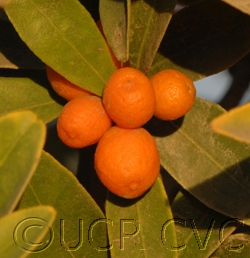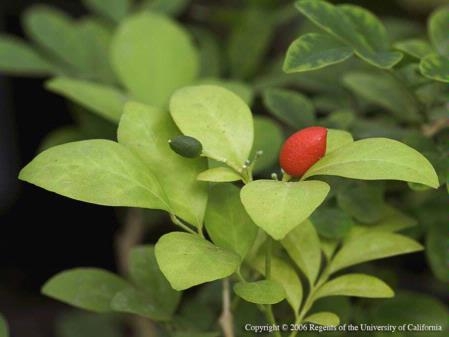Asian citrus psyllid, has not recently received much attention in the news media. However the pest, and the deadly bacterial disease it can carry, are still of great concern.
The Asian citrus psyllid (ACP) has now been found in eight California counties. Quarantines are in place. The psyllid by itself is not much of a problem; it is its ability to spread the fatal disease that has the potential to devastate both the California citrus industry and backyard citrus throughout the state.
Huanglongbing (HLB) is the name of the disease ACP can carry. Citrus and closely related plants are at risk. The disease is transmitted between plants by the psyllid. The psyllids transmit the disease to healthy plants and trees. After feeding on an infected plant, the ACP will transmit HLB to every other plant it feeds on.
While much outreach has focused on citrus trees, it is important to remember there are other plants that can host both ACP and HLB. This list from the University of Florida provides both the common and Latin plant name for many known hosts. Hosts include: curry leaf, ornamental orange-jasmine, and all the varieties of citrus, including kumquat, mandarin, grapefruit, orange and all of their hybrids.
Please remember to check your citrus and closely related plants regularly for signs of ACP or HLB. General information about this pest disease complex can be found on this section of the CDFA website. For local updates, the Ventura County ACP Task Force is a great source of information.
- ACP
- Asian citrus psyllid
- citrus
- commercial agriculture
- disease
- fruit trees
- home gardening
- Initiative B Abundant Food
- Initiative C Sharing Science
- Initiative F Families and Communities
- Initiative H Managing Pests
- invasive pests
- invasive species
- landscape professionals
- nursery production
- ornamental plants and trees
- pests
